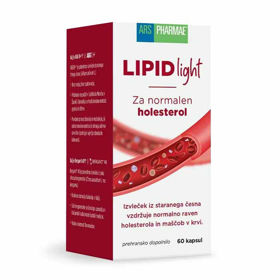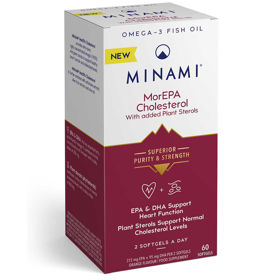Customer question:
Which active ingredients do cholesterol pills usually contain? Anonymous customer's question
Pharmacist's answer:
The active ingredient of tablets for cholesterol is usually different depending on the drug, but their mechanism of action is similar. Some common drugs that contain statins are atorvastatin, simvastatin, rosuvastatin, and pravastatin. These statins work by inhibiting an enzyme called HMG-CoA reductase, which is critical to the production of cholesterol in the body.
Are cholesterol pills always recommended?
For some people, dietary changes adapted to exercise and perhaps a slightly modified lifestyle in combination with cholesterol-lowering drugs can help. All of the above may be enough to reach target cholesterol levels and reduce the risk of cardiovascular disease. For many other people, the doctor may recommend medication if their cholesterol levels are too high or if they have a high risk of cardiovascular disease.
Do we need a doctor's prescription for cholesterol pills, or are there certain over-the-counter cholesterol supplements or pills?
Most cholesterol-lowering pills that contain statins require a prescription from a doctor. These are potent drugs that can have significant effects on the body, so they must be prescribed by a doctor and taken regularly and under supervision. Additives and nutritional supplements include fish oil, red rice yeast, plant sterols, and fibers such as oats and psyllium.
How long should we take cholesterol pills?
The length of time you take cholesterol pills depends on various factors, including your medical condition, level of risk for cardiovascular disease, response to treatment, and other factors. For some people, taking cholesterol pills can only be temporary, while for others, it means long-term treatment.
If you have been diagnosed with high cholesterol and have started taking statins or other cholesterol-lowering drugs, it is essential to follow your doctor's instructions regularly. Usually, the doctor prescribes a specific treatment regimen, including the daily dose and the time of taking the medicine.
For many people who have chronically elevated cholesterol levels or are in high-risk groups for cardiovascular disease, statins are prescribed for long-term treatment. These medications must be taken regularly and consistently to maintain their effectiveness in lowering cholesterol and reducing the risk of cardiovascular disease. It is essential to consult your doctor regularly while taking cholesterol pills. Your doctor can monitor your condition, check your cholesterol levels, and assess your response to treatment. Based on these examinations, the doctor can adjust the dose or type of medication and recommend possible lifestyle changes that can contribute to lowering cholesterol.
In some cases, if lifestyle changes are successful in lowering cholesterol and reducing the risk of cardiovascular disease, the need for medication may be reduced or even discontinued under the supervision of a physician. However, it is essential to follow your doctor's instructions and never stop taking your medication without consulting your doctor, as stopping treatment suddenly can increase your risk of cardiovascular events.
Interesting reading: Cholesterol limit
Interesting reading: Home remedy against cholesterol forum













